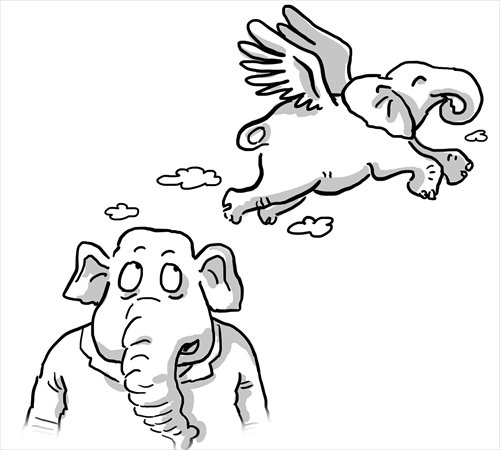India’s development potential often overestimated despite its unique advantages

Illustration: Liu Rui/GT
Many foreign media outlets have expressed optimism at the prospect of the India's development and have even predicted it will prove the victor in its race with China. Some Chinese people also think that India enjoys unique advantages.
During his visit to the US, Indian Prime Minister Narendra Modi promoted India's rise and claimed that its democracy, demographic dividend and market demand constitute the country's ongoing advantages.
There is no denying that India boasts many incomparable advantages in its rising process; these, however, do not necessarily constitute the ingredients for an Indian century.
Democracy is a system where a minority obey the majority to jointly administer state affairs, of which India's Western-style democracy is one type. Liberal democracy as understood by the West is not liberty and democracy in real sense.
There is no necessary connection between democracy and economic development. The Philippines cloned American democracy, but its economy has long lagged behind other ASEAN member states. Thailand, Ukraine, Egypt and other nations with a democratic system have not been able to ensure social stability and development. In India, economic growth is often hindered by its so-called democracy.
With its inefficient bureaucracy, grave corruption and lack of effective regulations, India frequently witnesses violent crimes.
All these demonstrate that good governance and rule of law, instead of Western-style democracy, will be the foundations of India's rise.
Whether its laborers have the right skills and observe the laws, along with demand for labor, will also be the keys to turning India's demographic advantage into an effective labor force.
India's illiteracy rate is still high. As a result, many of its young people lack necessary skills. Many Indians are also characterized by their lackadaisical approach to life.
India also has an imbalance in labor demand, with outsized agriculture and low-end service industries causing insufficient demand for the manufacturing sector. This is of no help to improving labor skills and expanding the country's manufacturing sector.
Market demand refers to consumers' desire and ability to purchase certain commodities or services. There are several factors affecting India's market demand: low levels of overall economic development, a huge wealth gap, and severe social inequality triggered by the caste system.
Changing all these will be a difficult task that requires comprehensive political, economic and social governance.
Compared with India, China has greater development potential. The Chinese system is characterized by highly effective decision-making, thus better resolving the conundrums of education and poverty.
Moreover, China has made greater investment in scientific and technological innovation, and cultivated more high-skilled laborers and high-tech talent.
China has also established a favorable market economic system. A higher economic level means stronger market demand.
Of course, China is facing numerous difficulties and challenges in its development process, as well. Providing sound solutions to domestic issues while not making strategic errors will be crucial in embracing the 21st century.
The author is a lecturer at the Party School of the CPC Shandong Provincial Committee. opinion@globaltimes.com.cn